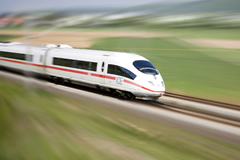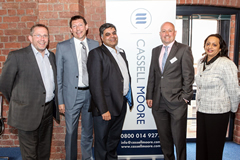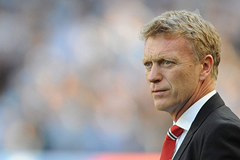It came as no surprise that David Moyes failed as the manager of Manchester United. Not to Evertonians anyway.
During his reign at Goodison Park he turned Everton from perennial relegation strugglers to a team that finished consistently in the top half of the table. He replaced an ageing squad with a younger, hungrier group of players. He brought respectability and pride back to one of England’s traditional ‘big clubs’. And on the back of all this, he became the third best paid manager in the Premier League whilst at Everton – and then landed the United job ten months ago.
His achievements at Everton did not go unnoticed; largely due to Moyes’ own ability to spin a very credible and plausible tale. He was doing all this with one hand tied behind his back. He had no money to spend. He was operating on a shoe string budget. He had to sell his best players.
He convinced the media, and he convinced the majority of Everton fans, myself included, that finishing in the top half of the Premier League was ‘job done’ at a club like Everton.
The facts somewhat betray the ‘miracle’ that he and his friends in the press would have us believe he presided over though. Indeed, Everton were not punching ‘above their weight’. They were finishing in a league position that was in and around the amount of money they were spending in comparison to their Premier League rivals.
Other than Wayne Rooney, he was able to replace any player he sold with someone better. He was given the resources to break the club record transfer fee on several occasions. And, he was never undermined by his chairman, or the supporters.
His Premier League record was decent, but closer analysis of his performance at Everton clearly provides evidence that he was a ‘bottler’.
In his eleven years at Everton, Moyes failed to win a single game at Anfield, Old Trafford, Stamford Bridge or the Emirates. He took Everton in to the Champions League in 2005. But his side were knocked out in the qualifying Round.
Though he led the Blues to an FA Cup final against Chelsea in 2009, his side failed to show up on the day, weakly surrendering despite taking the lead within a minute of the games start. Often overlooked, he scraped through to the final with a penalty shoot out victory over Man United’s RESERVES!
In 2012, he was back at Wembley for another semi final, this time against arch rivals Liverpool. Again Everton took the lead. Again, they lost the match as they went in to a second half meltdown against one of the worst Liverpool sides I have ever seen.
In truth most Blues supporters thought it was time for him to go then. He had taken Everton as far as he could.
Unfortunately the clubs chairman was not among that number, and we were ‘stuck with Moyes’ until United came knocking – but not until he had led Everton to an FA Cup Quarter final battering to Wigan.
On his final day in the home managers dug out at Goodison, he was given a heroes farewell by those of us who had accepted his ‘managed expectations.’ The Everton faithful recognised that when the biggest club on the planet come knocking…
There was a guard of honour, a standing ovation and a bloody great send off for a guy who had actually not won us a single trophy or even an away ‘derby’ game in eleven years. He left on the crest of a wave, head held high and with our very best wishes. But then!
It took Moyes eleven minutes to destroy a reputation that it had taken him eleven years to build. In a remarkably stupid press conference at Old Trafford he criticised his former club, the club that had made him, the club that paid him a salary that was the third highest in the league, the club that had given him that rousing farewell only weeks earlier, for not being grateful for a nickel and dime bid for two of their leading players.
He tried to bully Everton in to selling Marouane Fellaini and Leighton Baines on the cheap. He disrespected Everton in a way that would have been unacceptable for any manager to do, let alone one who had enjoyed the long association he had enjoyed with the club.
Not surprisingly Evertonians best wishes evaporated, replaced by the contempt he had shown them and their club.
Long before this though, and long before the disaster that has been the last ten months at United, I knew the Old Trafford job was too big for him. United fans often told me Moyes would succeed Sir Alex and I always, always said ‘that job is too big for him’. So it proved.
The manner in which he was dismissed was appalling, and not in keeping with a club of Manchester United’s stature. However, some may say ‘what comes around goes around.’
Many pundits have argued that Moyes hasn’t been given enough time. In my opinion, ten months or ten years, he would have been unable to hack a job where expectations cannot be managed; defensive football not tolerated. Even inheriting a Premiership winning team, albeit one in decline, he still failed to win at Anfield, the Emirates, Stamford Bridge or, fatefully, Goodison Park.
And if there was ever any more evidence required to prove that Moyes and United would never have worked, you only have to look at Everton since he left, under the leadership of Roberto Martinez.
Gone is the pragmatism, the negativity, the dampening of ambition. The Spaniard oozes positivity, confidence and hope. He dares his club to dream; recognising rather than dismissing its rich and proud history.
He does this whilst his team on the field of play perform in a swashbuckling style that has seen the phrase ‘school of science’ return to Goodison Park, replacing the more conservative ‘people’s club’ motto coined by his predecessor.
David Cameron once said to Tony Blair across the dispatch box of the House of Commons “You were the future once.” Martinez could have shouted the same thing across the dugout of Goodison Park to Moyes as he managed United for the final time.
The Old Trafford hierarchy may not have covered themselves in glory over Moyes’ dismissal, but give them credit for recognising relatively quickly that he was the wrong man for the huge job that is manager of Manchester United.
That does not make Moyes a bad manager though, and I expect him to return to a hot seat soon with a Newcastle, Villa or Sunderland and do a fantastic job for them. That is his level, and he, along with thousands of Evertonians and United fans, should know that now too.







